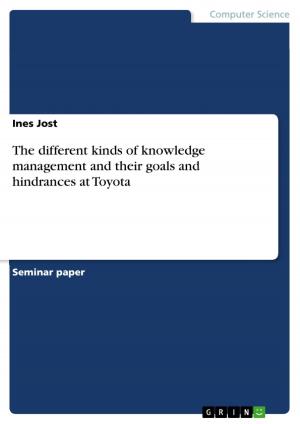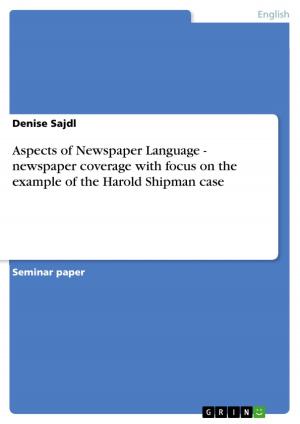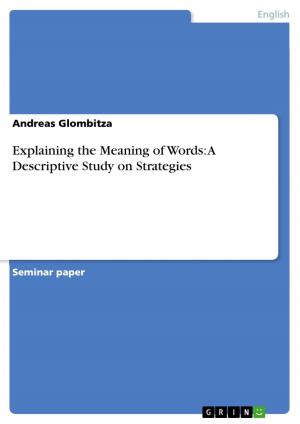Detected fallacies in President George W. Bush`s speech
'Remarks at the united nations general assembly'
Nonfiction, Entertainment, Drama, Anthologies| Author: | Nicholas Haase | ISBN: | 9783640408603 |
| Publisher: | GRIN Publishing | Publication: | August 24, 2009 |
| Imprint: | GRIN Publishing | Language: | English |
| Author: | Nicholas Haase |
| ISBN: | 9783640408603 |
| Publisher: | GRIN Publishing |
| Publication: | August 24, 2009 |
| Imprint: | GRIN Publishing |
| Language: | English |
Seminar paper from the year 2008 in the subject English Language and Literature Studies - Other, grade: 1,0, University of Göttingen (Seminar für Englische Philologie), course: Semantics and Pragmatics II: Coherence, language: English, abstract: In contrast to logical fallacies, which are independent of content, fallacies of content usually require specific factual knowledge to be revealed. They are not faulty because of their structure, but on account of their questionable content. The following term paper will be concerned with a piece of argumentative prose, which shall be analyzed for the various fallacies based on Patrick J. Hurley's A Concise Introduction To Logic. The major focus therefore shall be on the detection of fallacies of content. First, I am going to discuss in detail which kind of factual knowledge has led me to diagnose the fallacies that appear in the text. Secondly, I will explain why an uniformed reader might fall victim to the claims in my chosen text. ... 3. Dedected fallacies in Bush`s speech 3.1 Appeal to pity Bush starts off his speech with an appeal to pity by asking for the UN's sympathy. He reminds them 'to remember the innocent lives taken that terrible morning 'being killed by the terrorist attack from 9/11. As a conclusion he poses that they have to 'turn to the urgent duty of protecting other lives, without illusion and without fear.' So Bush attempts to support a conclusion, war against Iraq, by evoking pity through reminding his audience of the terrible terrorist attacks from 9/11. He claerly uses the appeal to pity since the declaring of war on Iraq has nothing to do with the great losses the USA had to endure on 9/11. And therefore it does not become clear why the United Nations have to take immediate steps against Iraq. The appeal to pity fallacy which is committed by Bush is shown in the following illustration: 2
Seminar paper from the year 2008 in the subject English Language and Literature Studies - Other, grade: 1,0, University of Göttingen (Seminar für Englische Philologie), course: Semantics and Pragmatics II: Coherence, language: English, abstract: In contrast to logical fallacies, which are independent of content, fallacies of content usually require specific factual knowledge to be revealed. They are not faulty because of their structure, but on account of their questionable content. The following term paper will be concerned with a piece of argumentative prose, which shall be analyzed for the various fallacies based on Patrick J. Hurley's A Concise Introduction To Logic. The major focus therefore shall be on the detection of fallacies of content. First, I am going to discuss in detail which kind of factual knowledge has led me to diagnose the fallacies that appear in the text. Secondly, I will explain why an uniformed reader might fall victim to the claims in my chosen text. ... 3. Dedected fallacies in Bush`s speech 3.1 Appeal to pity Bush starts off his speech with an appeal to pity by asking for the UN's sympathy. He reminds them 'to remember the innocent lives taken that terrible morning 'being killed by the terrorist attack from 9/11. As a conclusion he poses that they have to 'turn to the urgent duty of protecting other lives, without illusion and without fear.' So Bush attempts to support a conclusion, war against Iraq, by evoking pity through reminding his audience of the terrible terrorist attacks from 9/11. He claerly uses the appeal to pity since the declaring of war on Iraq has nothing to do with the great losses the USA had to endure on 9/11. And therefore it does not become clear why the United Nations have to take immediate steps against Iraq. The appeal to pity fallacy which is committed by Bush is shown in the following illustration: 2















